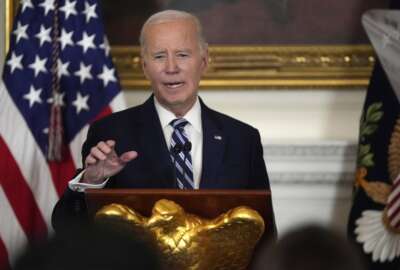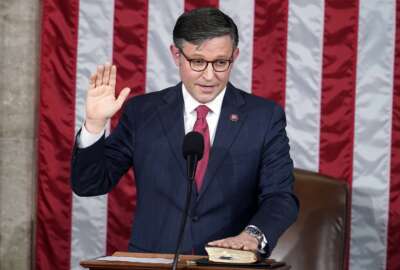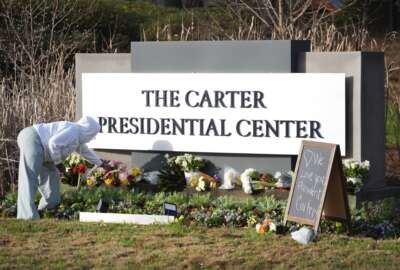Businesses like Trump tax plan, but they won’t rush to hire
Small business owners don't plan a hiring binge if the Trump administration's plan to lower tax rates becomes law
NEW YORK (AP) — Giving workers a raise, investing in new machinery. Small business owners have long wish lists to choose from if the Trump administration’s plan to lower tax rates becomes law — but most don’t expect to go on a hiring binge.
Some owners and small business groups hoped the dramatic cuts in corporate and personal taxes proposed Wednesday could mean more savings to invest in their businesses and more revenue coming in from consumers and businesses with some extra money to spend.
Brian Hart, the sole owner of a public relations company in Philadelphia, said he would reinvest any tax savings into Flackable, but doesn’t expect to have enough to hire employees. But lower tax rates could give his small business clients more money to spend on marketing, and that could mean expanding his staff down the road.
“It could ease the tax burden on the companies we work with so they could hire a company like hours,” Hart said.
Under President Donald Trump’s proposal, small businesses owners who pay their business taxes at personal tax rates would see their top rate go from 39.6 percent to the proposed corporate tax rate of 15 percent. Those owners are sole proprietors, partners or shareholders in what are called S corporations, or pass-through entities, which under the tax laws are intended to be small or mid-sized companies.
Nearly 80 percent of businesses are pass-through entities, a survey by the National Small Business Association advocacy group found this year. The remaining companies also stand to get a break on their rates, which would fall to 15 percent from 35 percent.
There are still many unknowns about the Trump proposal, in particular, what changes Congress might make to offset the drop in tax revenue that lower rates would likely bring.
And owners aren’t guaranteed a windfall. For one thing, many aren’t earning enough to get a tax break of $30,000 to $50,000, enough to perhaps hire a new staffer. Many also are likely already at the lower tax rates, which means they may not benefit from the proposal, said Emilio Escandon, a certified public accountant with the firm MBAF in New York. He notes, for example, that the 15 percent rate applies to couples whose taxable income — after all deductions and exemptions have been taken — is $75,900, an amount that owners of very small companies typically might earn.
A tax savings will help companies’ cash flow, and some will indeed have money to put toward expansion, whether that means hiring workers or investing in equipment, Escandon said. Some owners might decide to pay down their companies’ debt or put the money toward personal uses like funding children’s college education, he said.
Florist Rick McVey has a range of possibilities, not just from the prospect of lower taxes, but because he might get more business from customers who have more money. McVey, owner of Dilly Lily in Chicago, is considering paying his staff more, but might also put it back into the business.
“I may be able to invest the money to buy some capital equipment,” he said.
Donna Sebusch, owner of Cookie Creations of Atlanta, was pondering similar options, saying lower taxes could give her the opportunity over time to perhaps buy more machines that she needs for the shop, hire more people, or give her staff raises.
Dan Golden doesn’t expect lower tax rates to dramatically change his company; he’s focused on profits, not spending.
“I honestly don’t think we would do anything different in terms of hiring,” says Golden, whose Chicago-based company, Be Found Online, helps businesses use internet searches and other online strategies to increase their sales. But Golden did say that some of any potential savings could go toward bigger bonuses for the company’s 60 staffers.
Some small business advocacy groups hoped the proposed changes bring relief to owners in the upper brackets, and in turn help their companies and the economy.
“The general trend seems to be trying to lower the rates significantly to get business owners spending and buying again,” said Brad Close, senior vice president for public policy with the National Federation of Independent Business.
The National Small Business Association also liked the proposal but was wary about what will happen when it reaches Capitol Hill.
“Look at what happened with the health care bill,” said Molly Day, a spokeswoman for the group. “I don’t know that there’s going to be a lot of optimism that this is going to get done.”
Mark Tuscherer, whose company designs websites and apps, would like to use possible tax savings for a hire, but plans to wait and see how his business is doing if and when lower rates take effect.
“It really depends on how busy we are and what our year is looking like,” says Tuscherer, co-owner of Geeks Chicago. “It would be a big benefit, but I couldn’t just jump in.”
___
Associated Press reporters Teresa Crawford in Chicago and Johnny Clark in Atlanta contributed to this report.
_____
Follow Joyce Rosenberg at www.twitter.com/JoyceMRosenberg . Her work can be found here: http://bigstory.ap.org/content/joyce-m-rosenberg
Copyright © 2025 Federal News Network. All rights reserved. This website is not intended for users located within the European Economic Area.





